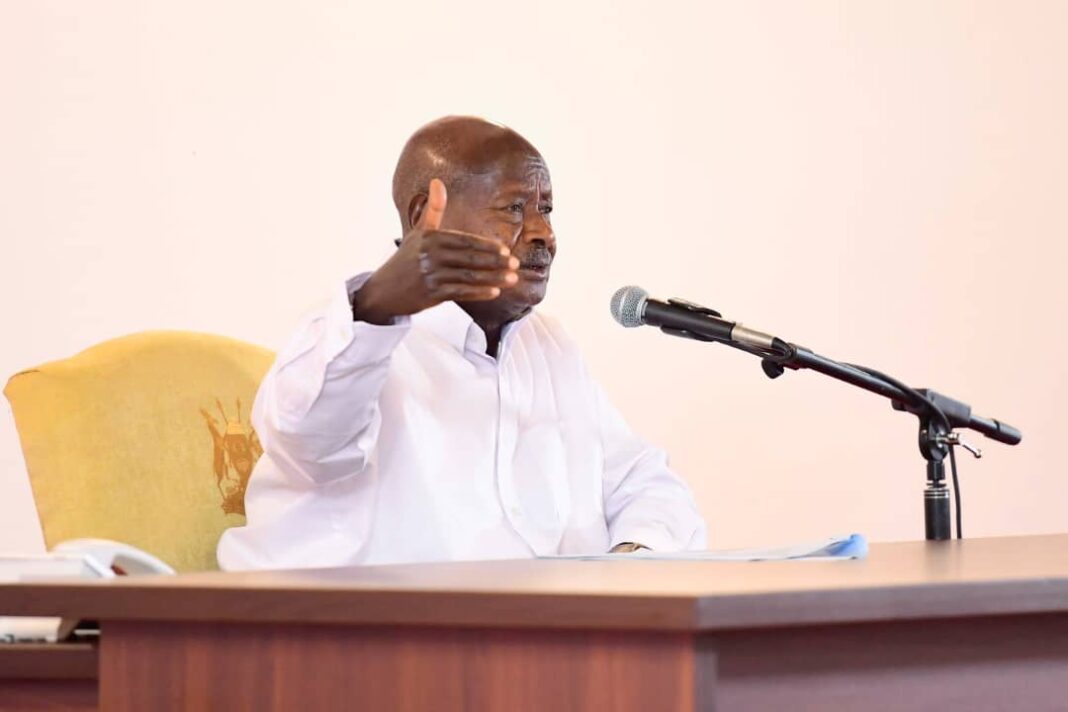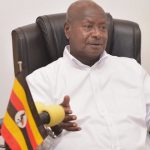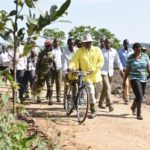President Yoweri Museveni has vowed to launch a full war against mosquitoes and malaria saying the focus has been on curative side and not so much on prevention and elimination.
“We were used to mainly the curative side. Prevention is not emphasized. We need to study data, what do we gain if we shift from curative to prevention or elimination. Can we develop vaccines, eliminate vectors and promote behaviour change? If we aim at elimination, we need to study how successful countries did it,” he said.
President Museveni was yesterday one of the panellists at a webinar organised by the Harvard University to highlight findings from a year-long global engagement on the theme, “Rethinking Malaria in the Context of COVID-19”
The President was invited by Harvard University and other partner institutions around the world to take stock of the global Malaria situation and offer insights on the most effective and innovative response to control and eliminate malaria across the globe.
The President acknowledged that the handling of malaria has been a bit leisurely. “It is true we have been a bit leisurely in our handling of malaria. We have lived with it for centuries and it is not as scary as Corona and Ebola although the costs of treating malaria are high. We have been diverted with a lot of things including minimum recovery and development. Suppose we eliminate malaria how much can we save. Can we develop a vaccine? I am ready to launch a full war against mosquitoes and malaria,” he said.
President Museveni said diseases are not simply biology but natural viruses and germs propelled by human behaviour. “Like Corona, it goes two metres and not beyond. If you take care, it will not affect you. Diseases are biological agents assisted by human behaviour,” he said. Citing the guinea worm which was endemic here but was eliminated through sensitizing people on drinking clean or filtered water.
Museveni emphasized that in the case of Uganda, they are looking at eliminating Larvie to have less mosquitoes, using bed nets, spraying on walls and for a long time now they have been talking about a vaccine.
“A multi-plonged approach can help deal with malaria including the use of therapeutics,” he said.
He said community involvement and sensitization is decisive in the fight against malaria and other illness citing tuberculosis, AIDS and COVID-19. He also said Uganda is emphasing research and is supporting various institutions with a lot of potential.
“There is a lot of knowledge in our communities not known to the world. Our scientists get knowledge and subject it to modern research,” he said. He called for collaborations between countries in the development of vaccines to make the research more efficient.
“Our scientists are not only working on a vaccine; they have also got all the chemicals they need. African countries should collaborate in the division of labour including multiplication of the viruses and chemicals. Collaboration will make it more efficient instead of each country going it alone and wasting time,” he said.
He emphasised change of behaviour by sensitisation and in extreme cases, by force as was the case for Corona were lockdowns where imposed.
According to reports, Uganda has the 3rd highest global burden of malaria cases (5 percent) and the 8th highest level of deaths (3 percent).
10 countries have been certified “Malaria free” in the past 5 years including China and Sri Lanka
Africa suffers 90 percent of the malaria burden and progress has stalled. Today, there are 220 million cases of malaria and 435,000 deaths worldwide – this is the same level of human suffering as was the case in 2015.
COVID-19 also brought about the fastest vaccine and diagnostics in history, proving our ability to quickly bring new/powerfully effective treatments to bear on public health challenges – and this is exactly what’s needed to end malaria
Other speakers included the Chair, Rose Gana Fomban Leke Emeritus Professor of Immunology and Parasitology University of Yaounde, Cameroon and the Co-Chair, Malaria Governance Working Group Uganda’s Specioza Naigaga Wandira Kazibwe, Senior Presidential Advisor Population & Health and Vice President Emeritus, Michelle A. Williams Dean of the Faculty Harvard T.H. Chan School of Public Health Angelopoulos Professor in Public Health and International Development and Matshidiso Moeti Regional Director for Africa, World Health Organization among others.








